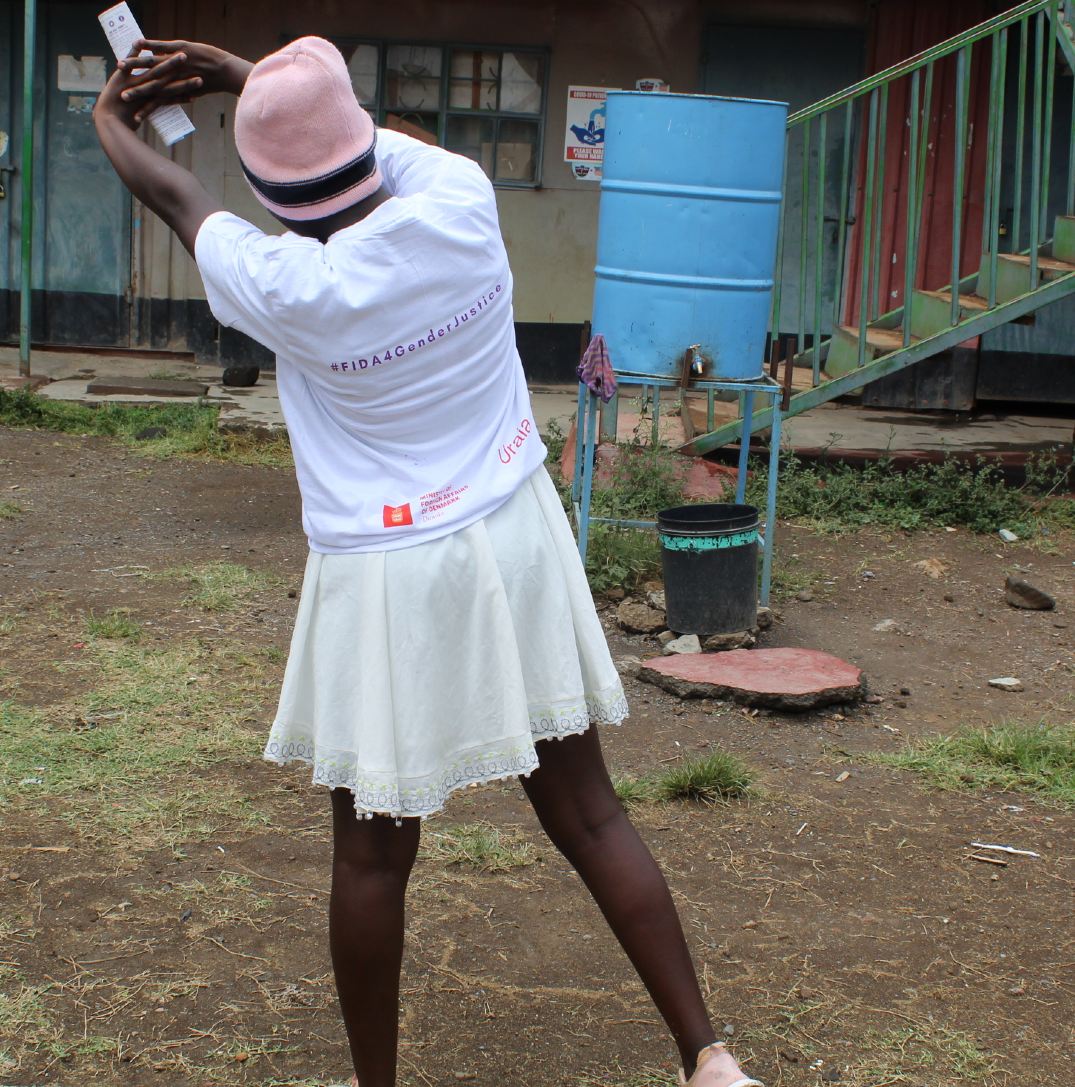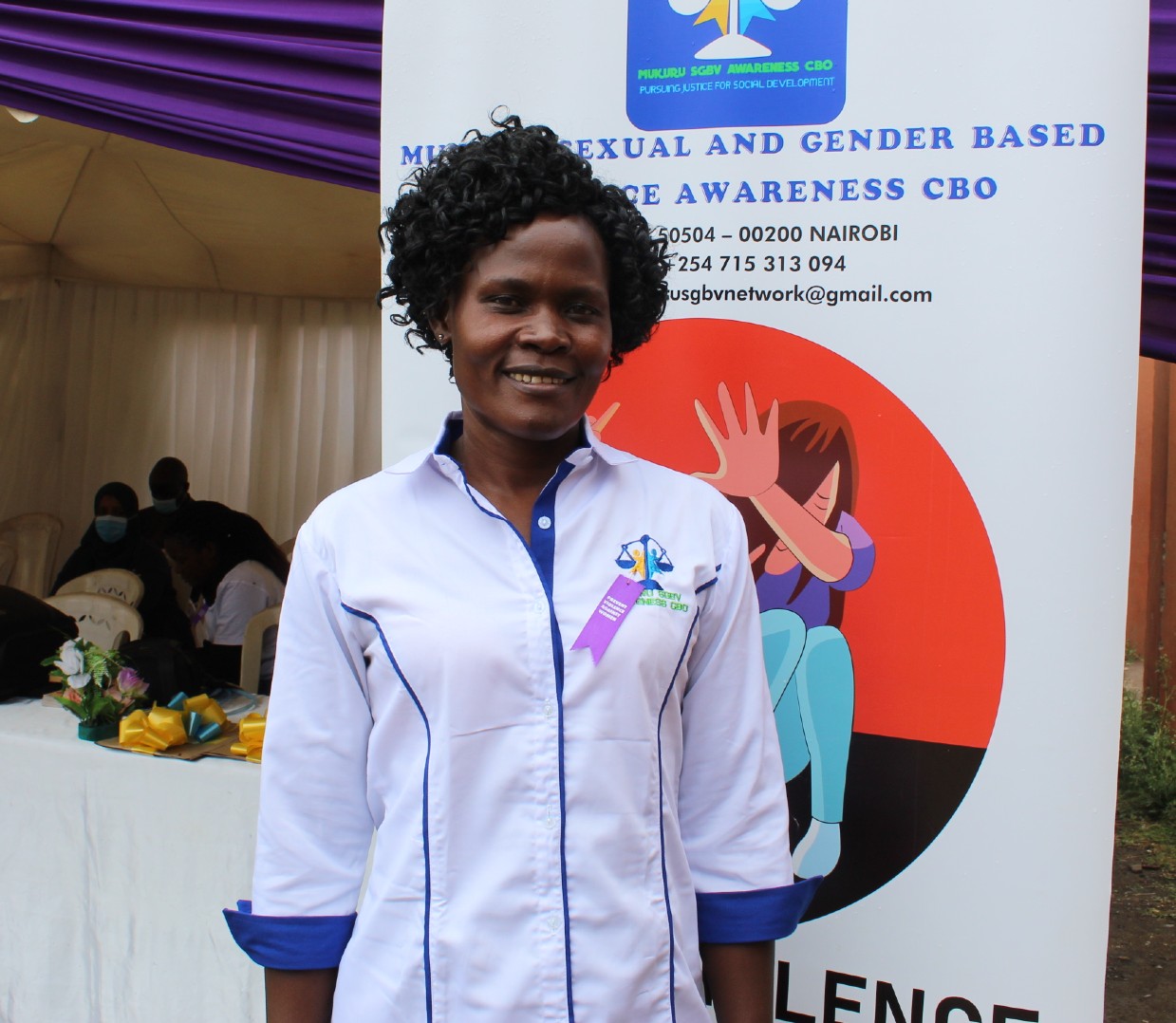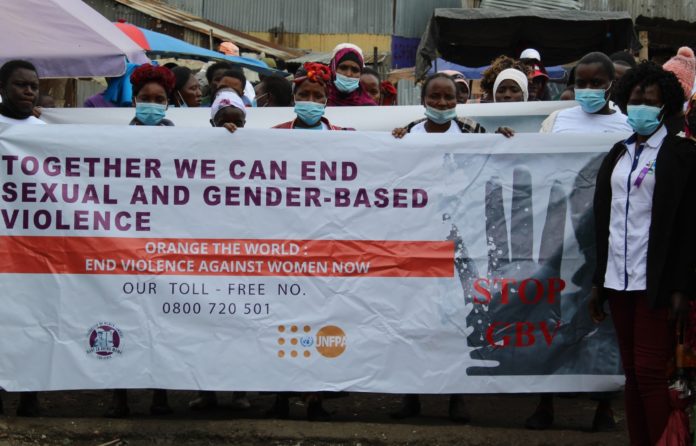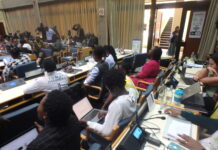By Mary Mwendwa
Nairobi County, Kenya: Veronica Monica aged 16, not her real name was gang-raped by street boys when she was in class 5 in Nairobi’s Mukuru Kwa Njenga informal settlement area.
She was defiled in 2019 because she refused to share food with the rowdy street boys who always roam on the streets near her home.
Narrow muddy paths with poor drainage systems, temporary houses made of iron sheets, and other weak materials are common in Mukuru Kwa Njenga.
This is where Monica calls home.
Life is tough, poverty and suffering are evident as many residents are involved in small businesses while others work as casual workers at the nearby factories owned by Asians.
Fresh structures that have been pulled down after recent demolitions by the Nairobi Metropolitan Service have rendered many homeless.
Desperation is rife.
Monica freshly remembers the day her world turned upside down and had no one to tell about the ordeal.
“ We had just been served with food at school, it is normal here in the slum when food is excess at the school locals are called in to share the remaining food. On this particular day, food was not enough, the school served us and we decided with my two friends to carry our food home.”
Monica reveals that a commotion between some street boys and some local teenagers ensued. “ As we walked towards home together with my friends, there was a small thicket where the boys were shouting, tupatie chakula, tupatie chakula– give us food, give us food. We tried to resist but they overpowered us.”
“ Within a blink of an eye, the street boys were gang-raping us and hurling insults and telling us they will kill us. It was a dark day!”

Monica together with her friends managed to run away after the act with torn clothes and bruises with no one at their rescue. “ We went home, and when I arrived at our house I did not disclose to my parents about the rape, they asked me why my clothes were torn and I had bruises, I lied to them that I was involved in a fight at school.”
“ I became bitter, suicidal and I did not want to see a man or a boy, I always wanted to kill them. I was arrogant and did not care about anything.” Monica narrated.
Monica contracted an infection where she used to bleed a lot and she did not know what it was. “ I told my mother I was bleeding but she did not know it was as a result of rape. She did not have money for treatment but struggled to get some money and sort for my treatment. Also, Tumaini clinic here in Mukuru Kwa Njenga was very helpful.”
Safe space at a school
Her life took a different turn when a special visitor came to talk to them about Sexual Reproductive Health Rights and Sexual and Gender-Based Violence,(SGBV).
The visitor who breathed hope into her life was Helen Okello, a Community Health Volunteer ( CHV) and chairperson, Mukuru SGBV awareness Community-Based Organization (CBO).
Okello visited Monica’s school together with other counselors to talk about sexual and reproductive health rights. “ We usually do school visits and talk to pupils to help them understand their sexuality and also talk about SGBV issues. “
“We usually create safe spaces for these children to help them to open up about issues they are going through. This has been a very successful venture because we get to know about many defilement cases through counseling and intervention while seeking further help for the survivors. A good example is Monica when she was in class five she revealed to us about her gang rape ordeal and we were able to counsel her and link her to the Tumaini Clinic where she was further treated.”
Okello reveals that defilement cases among children in Mukuru Kwa Njenga have been on the rise in the recent past.” When covid-19 was reported here in Kenya and schools shut, a spike in defilement cases was reported, children were now spending more time with perpetrators.
Okello praises the training with the community and schools have been helpful.”
“The trainings have helped the community more aware about SGBV and they are more vigilant hence reporting cases.”
Gaps in the legal system
Okello reveals that as a community workers dealing with SGBV cases especially defilement among children they face obstacles that are related to the law. “ You can imagine a defilement case where the magistrate is demanding for witnesses, yet when the child was defiled no one saw it apart from the perpetrator. Many cases have been dropped due to lack of witness.”
“ Why can’t the courts just use the testimony of the victim and forensic evidence to prosecute the perpetrator?” She poses.

Okello further says that some perpetrators are walking free and making fun of the victims because there was a lack of evidence yet they committed the offense.
Mukuru Kwa Njenga Community celebrated the 16 Days of Activism, themed- Orange the World this year by having a peaceful match and a forum to sensitize the community about SGBV/GBV issues.
Elsie Milimo, Project Officer from CREAW called for a strategy in terms of having shelters for victims of SGBV. “ Shelters reduce the risk to victims of SGBV we need a proper framework on how the safe houses will operate, this is missing for now.” She noted.
It is during this meeting that Monica and Okello among other stakeholders participated and talked about SGBV in Mukuru Kwa Njenga.
Stakeholders from the government including administration and non-government organizations like the Federation of Women Lawyers (FIDA), Association of Media Women in Kenya (AMWIK), Centre for Rights Education, and Awareness (CREAW) among many others were represented.
All these organizations called for special courts to deal with SGBV/GBV cases, this would fasten cases which at the moment take long before ruling.
Kenya’s Sexual Offences Act 2006 clearly outlines states that, any person who attempts to unlawfully, and intentionally commit an act that causes penetration with his or her genital organs is guilty of the offense of attempted rape and is liable upon conviction for imprisonment for a term which shall not be less than five years but which may be enhanced to imprisonment for life.
Also, The Protocol to the African Charter on Human and Peoples’ Rights on the Rights of Women in Africa, better known as the Maputo Protocol, guarantees comprehensive rights to women including the right to take part in the political process, to social and political equality with men, improved autonomy in their reproductive health decisions, and an end to female genital mutilation.
These legal frameworks have been put in place to protect women and girls and Kenya remains a signatory to them.














